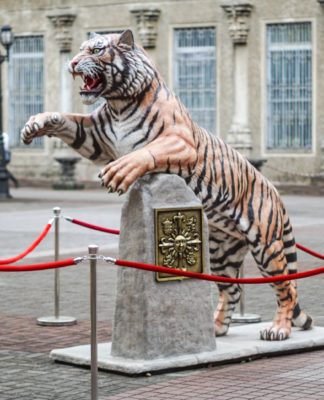TESTS such as the Rorschach and the Myers-Brigg Type Indicator (MBTI) have been commonly used by psychologists and people in general in determining one’s personality, but in the 1920s, a Japanese professor theorized that blood types can also do the same.
Takeji Furukawa of Tokyo Women’s University introduced the blood type personality theory (ABO theory) in a paper published in 1927. His “A Study of Temperament and Blood-Groups” stated that the four blood groups—A, B, AB and O—may work similarly with Hippocrates’s Four Temperaments, and that each blood group may hold characteristics unique from the other three.
While the relationship of blood types and personality has been the topic of numerous studies, the phenomenon of personality tests and why people tend to follow this trend is also a popular subject in the field of psychology.
‘Scientific racism’
Renz Christian Argao, supervising psychologist of the UST Psychotrauma Clinic, said the ABO theory took its roots during the period of World War II because of the prevalence of scientific racism during the early 1900s.
While the topic on racial classification started to decline after the war, there are still scientists and some post-war anthropologists like William Boyd attempted to find more “valid and objective” racial classification using blood group technology.
Though the theory was debunked due to his lack of credentials and the paper’s lack of scientific backing, popular reception from the Japanese and a broadcaster named Masahiko Nomi revived the theory in the 1970s.
Theorists view Type O, the most dominant of the blood types, as a “hero” because of its members’ tendencies to be natural leaders. They are also said to be the most expressive, flexible, easygoing and honest of the blood groups.
However, Park Dong-Sun, author of the “Simple Thinking About Blood Types” also described Os as cold, competitive, self-centered and stubborn.
Meanwhile, Type A are believed to be “role models” for their Zen-like personality and the “most industrious” among the blood groups.
Wendy Watson, doctor in family therapy and author of “Blood Type & Your Personality” suggested that these people have “subtle and delicate personalities,” though they also tend to be obsessive and uptight.
Type B, opposite of As, are known to be rebellious for their strong will and personality. They also tend to be charming, charismatic and assertive.
Lastly, Type AB possesses both qualities of Types A and B. They are said to be the most generous and tend to think outside the box.
In 1961, a hematological study published by Raymond Cattell and his colleagues from the University of Illinois and Harvard University said that the findings in the psychiatric field contributed to the development of the theory on blood type personalities.
Cattell’s study suggested that primary personality factors appearing with certain blood types formed roots for blood type association even though these relationships can be purely coincidental.
‘Self-fulfilling prophecy’
Edilberto Gonzaga, M.D., resident psychiatrist of the UST Psychotrauma Clinic, added that unlike standardized tests, theories on personality like the ABO theory are hard to assess because they rely simply on association.
“The Myers-Briggs, for example, is a standardized test with a predictive value,” he said. “Unlike the blood type personality theory [which] is not 100-percent scientifically-based.”
The ABO theory and similar concepts such as those found in astrological signs are what psychologists call examples of “self-fulfilling prophecies,” which is defined as “a belief that becomes true because a person is acting as if it is already true.”
Gonzaga echoed this by saying that people easily believe what they see in the Internet, especially if it is convenient for them.
“You read something good about your blood type and you would believe it’s true, but you hesitate to believe it when it says something bad or negative about your blood type,” he said.
In 2002, Akira Sakamoto and Kenji Yamazaki from Ochanonizu University published a paper that proved that blood type personality theory did not show any relationships between blood types and personalities.
According to the paper, individuals who are unfamiliar with the theory may simply “choose” a blood type, while some may be influenced by family traditions and cultural traits.
“People would define themselves based on [these tests], but in reality personality is complex,” Argao said. “It is so fluid and diverse that even psychologists have a hard time doing tests that determine personality.”
According to Gonzaga, while blood type may be genetically linked with personalities, more studies should be made because of the conflict it presents.
“Blood types are fixed and permanent. If you say that a personality is linked to a blood type, then personality is also fixed,” he said.
Gonzaga also said the ABO theory may help people justify or rationalize their personalities, but it might be a good or a bad thing depending on how people would let the theory affect their lifestyles.
“You will become the person you think you are,” he said. “The things people believe will become their reality.” K.J.V. Naparan













